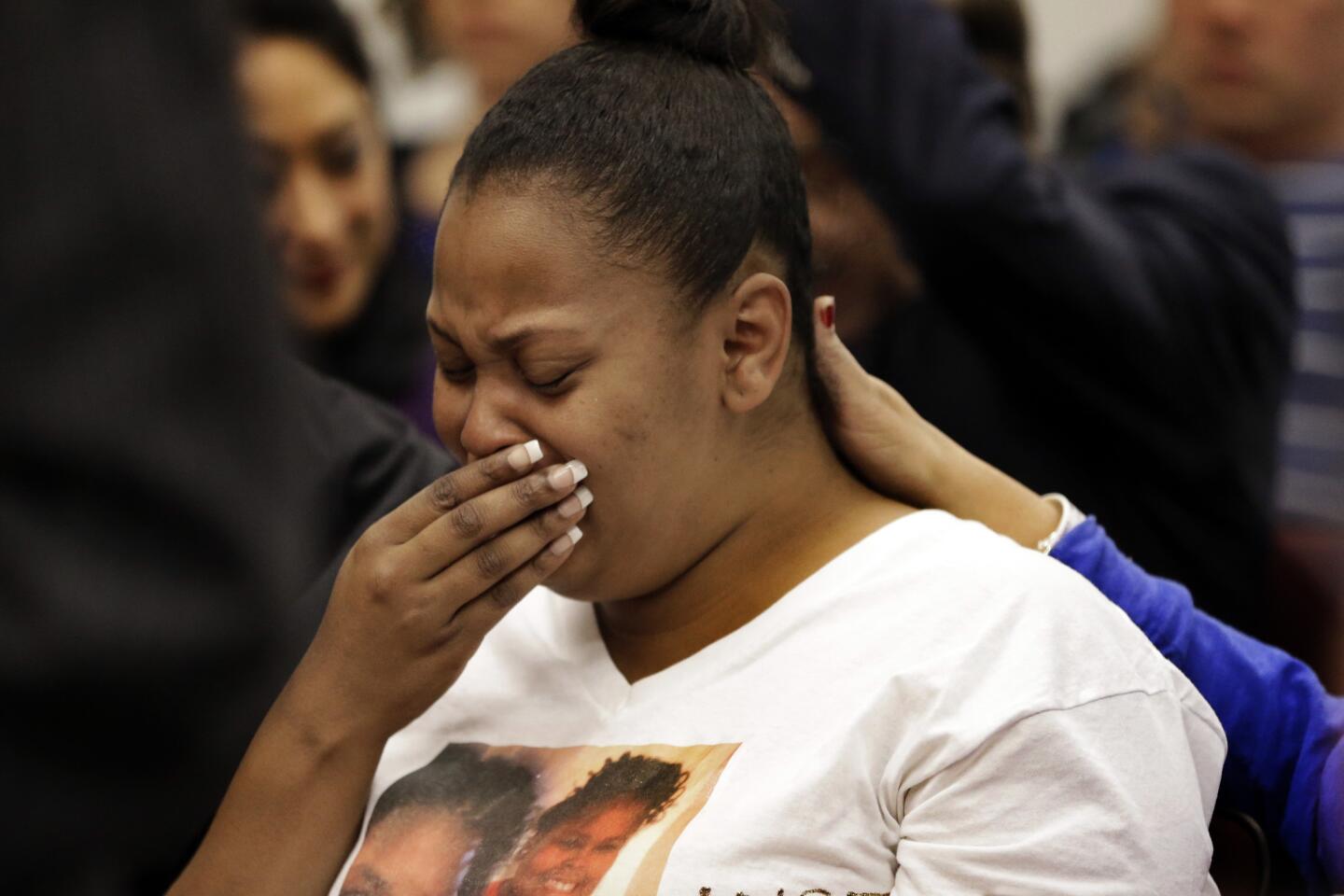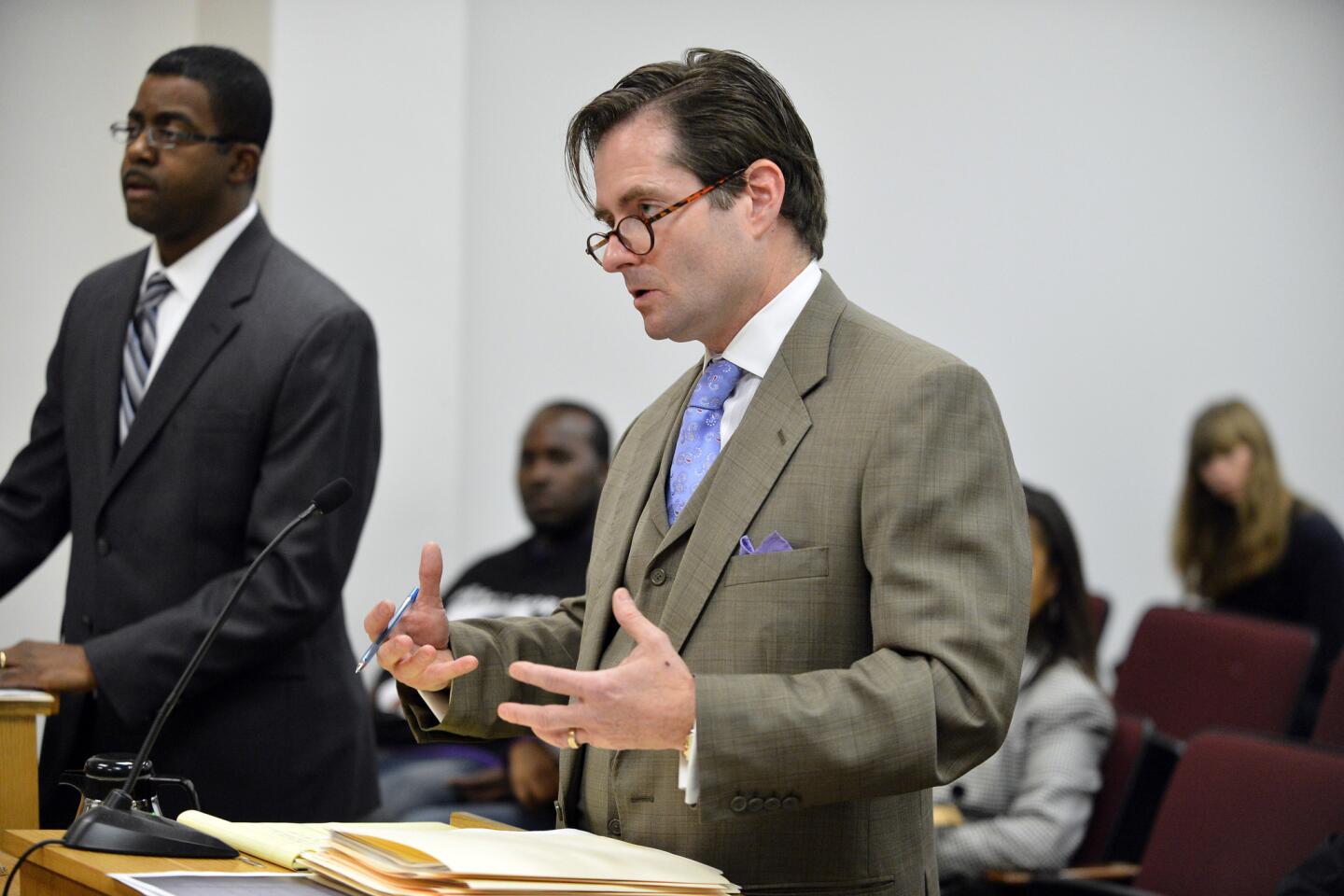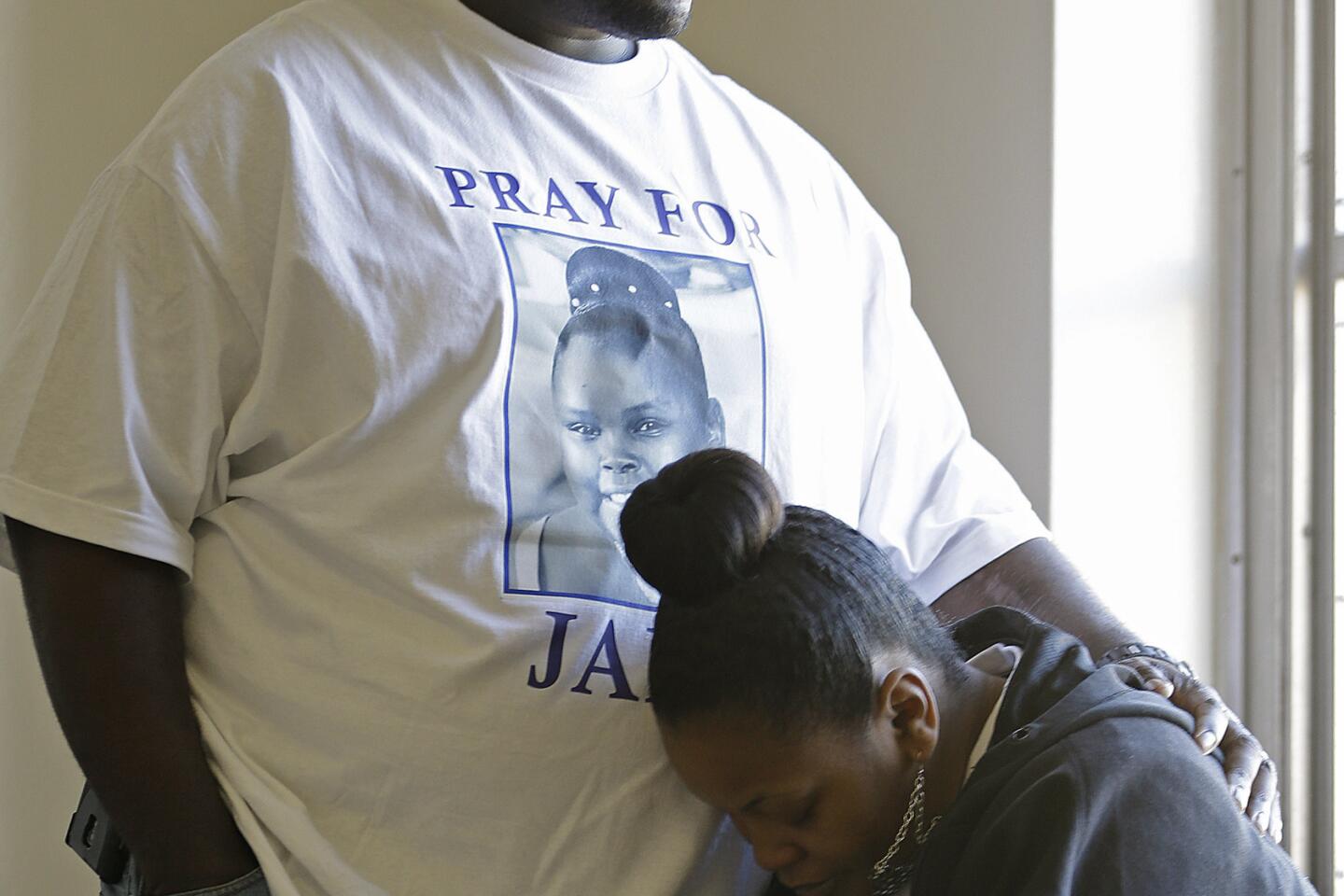Court order to keep brain-dead girl on ventilator is extended
OAKLAND — A court order was extended late Monday that will keep a 13-year-old girl deemed brain-dead on a ventilator for another week, while the facility pledged to work with the family to transfer Jahi McMath elsewhere if certain conditions could be met.
Sam Singer, a public relations consultant retained by the hospital, said the family must find an outside physician willing to insert breathing and feeding tubes, a way to transport Jahi and a nursing care facility that is willing to accept “a deceased person.”
The case has tugged at the hearts of people across the country who are sympathetic to the family’s pleas that Jahi be given a chance to “live.” Experts in law and medical ethics, meanwhile, say she is legally dead with no chance for a change in her condition.
“The hospital continues to give its deepest condolences to the family, and we hope they can come to terms with the death of Jahi McMath,” Singer said outside the hospital after a temporary restraining order initially issued by Alameda County Judge Evelio Grillo on Dec. 20 was extended through Jan. 7.
It had been set to expire at 5 p.m. Monday. The family attorney, who had sought the original restraining order and the extension, is appealing Grillo’s determination that Jahi is brain-dead and filed a separate case in federal court. Singer said hospital attorneys plan to fight all three.
The McMath family lawyer has said three facilities have expressed a willingness to accept Jahi, but Singer said “this hospital has had no substantive conversations with any of them.”
Two West Coast facilities withdrew their offers, family members said, but they maintained Monday that an unnamed New York facility is willing to accept the girl.
Omari Sealey, an uncle of Jahi, said the family has a contract with the facility and has arranged for medical transport. But Singer countered that the hospital has questions about the documents that purportedly confirm the New York facility’s commitment.
Jahi suffered heavy bleeding, cardiac arrest and “whole brain death” — defined as an irreversible cessation of all functions of the entire brain, including the brainstem — on Dec. 12, three days after a complex tonsillectomy.
Two hospital physicians and three outside doctors requested by the family deemed her brain-dead, court records show, and the county coroner was notified. But the family protested the hospital’s intention to remove Jahi from a ventilator.
Tests by an independent physician named by Grillo also determined that the girl is legally dead. They showed no blood flow to the brain, an inability to breathe on her own and no sign of electrical activity.
There is broad medical and legal consensus that whole brain death constitutes one of two legal definitions of death. A Harvard Medical School panel first put forth the standard in 1968, and in 1981 a presidential council proposed that a uniform statute be adopted nationwide. It was published as the “Uniform Determination of Death Act.”
Another presidential council reaffirmed in 2008 that “whole brain death” is legal death.
However, in her petition for an emergency stay in the state court of appeal, the mother of Jahi McMath contends that the act violates her freedom of religion and privacy under the California Constitution. Singer said hospital attorneys disagree.
Alexander Capron, the Scott H. Bice Chair in Healthcare Law, Policy and Ethics and a professor at USC’s Keck School of Medicine, helped craft the standard and said “thousands of people” are deemed dead each year based on neurological — rather than cardiac — measurements. “We have data going back 45 years establishing this nature of death,” he said.
He added that this case cannot be compared to such others as that of Terry Schiavo of Florida, who was in a so-called persistent vegetative state and still experiencing brain activity. “Those are situations where the family makes a choice,” he said.
More to Read
Sign up for Essential California
The most important California stories and recommendations in your inbox every morning.
You may occasionally receive promotional content from the Los Angeles Times.















